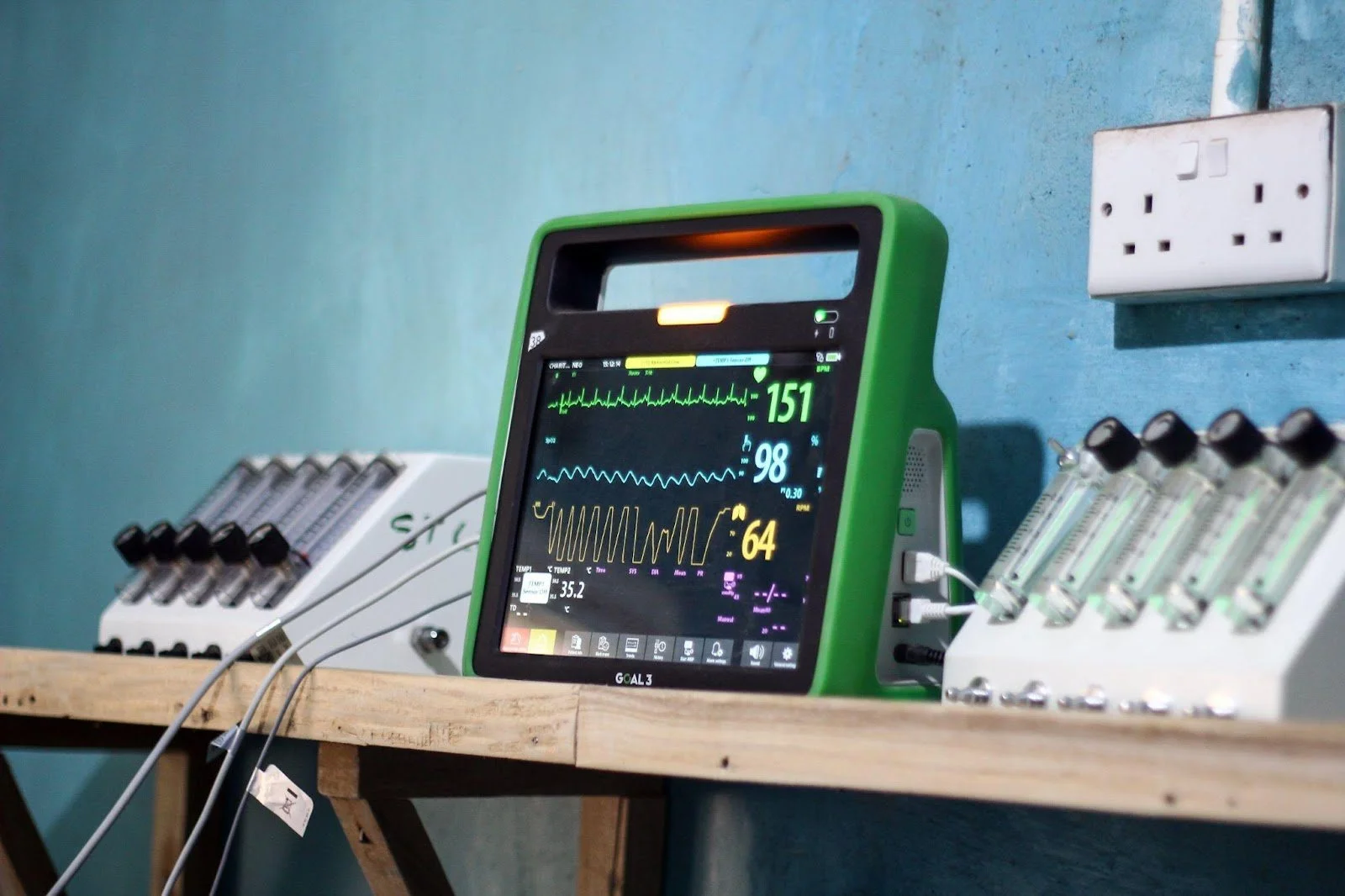IMPALA System
MLC Voyager | Created by Goal 3
IMPALA is a scalable patient monitoring platform implemented in low-resource hospitals across Malawi, Rwanda, and Tanzania. It supports healthcare workers with rugged hardware, offline-capable software, and integrated training to deliver proactive (neonatal and pediatric) care. IMPALA addresses the challenge of high child mortality by enabling early detection of deterioration, improving decision-making, and reducing preventable deaths in underserved communities.
50,000 Lives Impacted
IMPALA is significantly improving health outcomes and economic resilience in underserved communities across Malawi, Rwanda, and Tanzania. By equipping frontline health workers with a robust monitoring system tailored for low-resource settings, IMPALA enables early detection of clinical deterioration in patients—leading to faster, more effective treatment. This has resulted in mortality reductions of up to 42% in pediatric wards and 27% in neonatal units. Over 50,000 people living on less than $5.50/day have been directly impacted to date, with an estimated 653,000 to benefit within 18 months.
Beyond clinical outcomes, IMPALA reduces the economic burden on families by preventing costly complications and long hospital stays—yielding up to $94 in savings per patient for a $3 investment. It also improves the efficiency and well-being of healthcare workers: over 90% report time savings and reduced stress. The system maintains >99% uptime and 100% device durability after 2.5 years, making it a sustainable solution for overstretched health systems. Key milestones include successful implementation in 10 hospitals, growing public sector partnerships, and regulatory approval in East Africa—positioning IMPALA as one of the most cost-effective and scalable interventions for child survival and health system strengthening.
The Innovation
IMPALA is a comprehensive, context-adapted patient monitoring system designed to transform emergency and critical care in low-resource settings. It integrates rugged bedside monitors, offline-capable clinical software, early warning alerts, and hands-on training to enable timely, data-driven decisions in various wards, such as neonatal and pediatric care wards. Currently implemented in hospitals across Malawi, Rwanda, and Tanzania, IMPALA serves some of the world’s most vulnerable populations—newborns and children under five in communities living on less than $5.50/day.
The system empowers healthcare workers in facilities with unreliable electricity, minimal infrastructure, and staff shortages to proactively manage high-risk patients. What makes IMPALA unique is its blend of durable technology, user-centered design, and local training programs—all built for sustainability and scalability. IMPALA has demonstrated a 42% reduction in pediatric mortality and a 27% drop in neonatal deaths, with a cost-effectiveness of just $3–$4 per life-year saved.
Looking ahead, GOAL 3 plans to scale IMPALA across hundreds of hospitals in Sub-Saharan Africa, expanding into maternal health and surgical care while maintaining alignment with national health strategies. By enabling real-time data use, improving outcomes, and lowering system costs, IMPALA is reshaping how lifesaving care is delivered where it's needed most.
Implemented in
Rwanda, Malawi, Tanzania, Gabon, Zanzibar
Get in touch
Jelle Schuitemaker, CMO & Co-Founder
About Goal 3
GOAL 3 is a social enterprise dedicated to transforming healthcare in low-resource settings by enabling and empowering frontline health workers with innovative, context-appropriate technologies. We aim to save lives and strengthen health systems through sustainable, scalable solutions like the IMPALA platform. Guided by the vision of achieving equitable healthcare access for all, we focus on delivering high-impact interventions where they are needed most.



